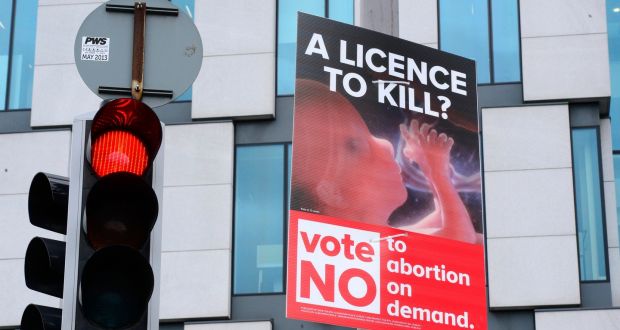The decision that Irish people are being asked to make on May 25 is one of epic proportion. Never before in the history of this State have people been asked whether or not they want to vote the fundamental right to life of one particular group out of constitutional existence. Bunreacht na hÉireann is not an arid aspirational document – it is where the most profound values of the Irish people are articulated. If voters choose on May 25 to remove the right to life of the unborn – the only constitutional right enjoyed by the unborn as the Supreme Court recently clarified – we, as a people, will be crossing a Rubicon and there will be no easy way back.
Proponents of abortion have criticised pro-life campaigners for pointing to the fact that for every four children born in England and Wales, one baby is aborted. They argue that if their proposal is carried, that will not happen here. But, by what magical formula do they deduce that Irish people are any different from people in any other part of the world? The evidence is clear, even when abortion is introduced in limited circumstances it inevitably becomes commonplace and part of the culture around pregnancy.
Those campaigning for repeal of the Eighth Amendment have been making much of what are often referred to as ‘hard cases’ such as rape, incest or when the child will not live for very long after birth. The evidence from abroad is that fewer than 3% of abortions are carried out in these circumstances. The remaining abortions – 97% – are carried out in circumstances where healthy mothers are carrying healthy babies. This is the reality of abortion – and it is telling that the one thing that pro-choice advocates never talk about in their debates is the life of the unborn child. Even those in favour of providing legal abortion, it would seem, are unwilling to face what it is.
As barrister Benedict Ó Floinn points out in this week’s paper, how the Government will respond in the event of a ‘yes’ vote is no longer guess-work.
Mr Ó Floinn points out that “draft legislation has been published and if it were read, the ‘no’ vote would undoubtedly prevail”.
He goes on to point out that the legislation is not, as some have suggested, restrictive. It provides for a wide-ranging right to an abortion not only up to 12 weeks but also up to viability, i.e. up to six months (Head 4). In certain circumstances, the unborn child’s life may be ended right up until he or she has been born (Head 6). It is, by any standard, extreme.
Also, every lawyer will tell you that any limitations on access to abortions as might be set in legislation can be removed at any time by future governments or challenged.
The only way to say no to abortion on demand in Ireland is by voting ‘no’ on May 25.
Michael Kelly is co-author of a new book with Austen Ivereigh How to Defend the Faith – Without Raising Your Voice – it is available from Columba Press www.columbabooks.com


 Michael Kelly
Michael Kelly